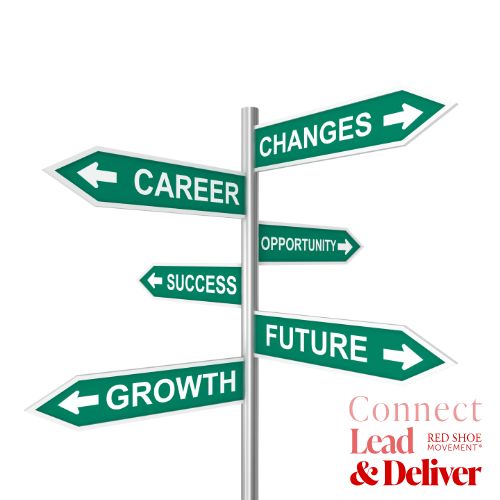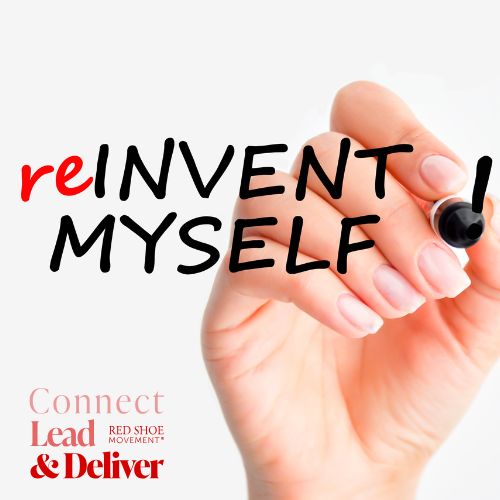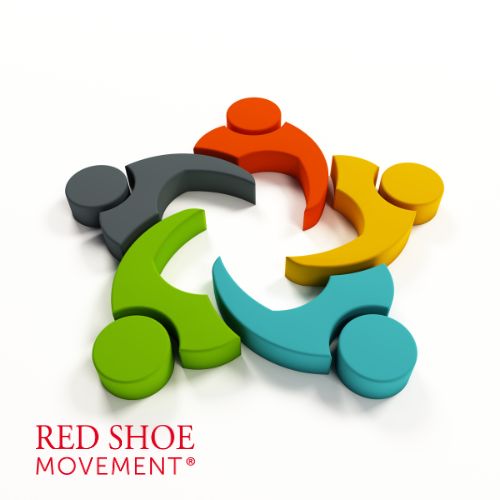If you’ve ever received feedback that made you squirm—even just a little—you’re not alone. Feedback can feel uncomfortable, personal, and even unfair at times. But here’s the truth: it’s also one of the most powerful tools for growth in your career.
Whether you’re working in a global corporation or running your own business, learning how to receive and use feedback can be the difference between staying stuck and leveling up.
When handled right, feedback becomes fuel. Fuel for clarity. Fuel for confidence. Fuel for growth.

Yet, depending on your country of residence or your culture the way to give and receive feedback may differ widely. So, please keep in mind that the suggestions we offer here are very American-centric. If you’d like to learn about how other cultures manage feedback, we highly recommend The Culture Map book by Erin Meyer.
Redefine What Feedback Really Is
Let’s begin by shifting our mindsets. Feedback isn’t an attack on your identity—it’s data. Think of it like input from your GPS. It’s not judging how you got here; it’s simply helping you get where you want to go.
The most successful professionals actively seek feedback because they understand that growth happens when we see what we can’t yet see ourselves. Because someone helps us see some of our blind spots.
If you can detach feedback from your ego, you’ll unlock its power much faster.
Protect your team from feedback fatigue
Create a Feedback-Friendly Environment
Regardless of your current role, don’t just wait for feedback—invite it.
Create a culture (even if it’s just a culture of one) that welcomes ongoing feedback and normalizes course correction. This is what most people in high tech do. They launch version 1.0, get users feedback, tweak it, launch version 1.5, and so on. Taking a page off their book could help you grow enormously!
- Ask your team, clients, or peers: “What’s one thing I could do better next time?”
- Build feedback check-ins into your project timelines.
- Thank people for their honesty, even when the message is hard to hear.
- Don’t argue or defend yourself when receiving feedback or it will be the last time the person will ever bother to offer their feedback.
When you show that feedback isn’t a threat, others feel more comfortable giving it—and you’re more likely to grow in ways that matter.

Know the Difference Between Constructive and Toxic Feedback
Not all feedback is created equal. Constructive feedback is behavior-based, specific, and rooted in the intention to help you improve. Toxic feedback is vague, personal, or aimed at diminishing your confidence.
Constructive: “Your presentation was strong, but consider tightening your key points to keep the audience engaged.”
Toxic: “You just didn’t seem very confident out there.”
Use this mental checklist to assess what you hear:
- Is the feedback specific?
- Is it focused on behavior (not personality)?
- Is it offered with the intention to help me grow?
If the answer is yes, it’s worth processing. If not, let it go—or seek clarification.
Use the Pause-Process-Plan Approach
When you receive feedback, especially critical feedback, your first reaction might be to defend yourself. Instead, use the Pause-Process-Plan approach.
- Pause: Take a breath. Resist the urge to react immediately.
- Process: Reflect on what was said. Is there a pattern? Is there truth—even if it stings?
- Plan: Decide what to do with the information. What’s the next small step you can take to improve?
This intentional approach helps you stay in control and model maturity and resilience.
Look for Patterns Over Time
One comment doesn’t define you—but repeated patterns might be trying to tell you something.
If you keep hearing things like:
- “You need to speak up more in meetings”
- “You’re great at execution but not as strong at strategic thinking”
- “You could manage your team with more empathy”
That’s gold. It means you have a clear area to focus your development.
Start collecting feedback like data points. Over time, trends will emerge that can shape your professional goals and strategy.

Ask Better Questions to Get Better Feedback
Vague questions lead to vague answers. If you want truly helpful insights, be specific when asking for feedback.
Instead of: “Do you have any feedback for me?”
Try:
- “What’s one thing I could have done differently to improve that outcome?”
- “Was there anything in my presentation that didn’t land as clearly as I intended?”
- “What can I do to better support our team next quarter?”
Better questions invite actionable responses and help your colleagues or clients help you grow.
Try this piece on unlocking the true value of feedback conversations
Turn Feedback into Development Goals
Once you’ve gathered feedback, turn it into a roadmap.
Let’s say you’ve been told you need to be more strategic. Your development goal could be:
- Read one book per month on strategic thinking.
- Shadow or connect with a colleague known for this skill.
- Volunteer for projects that involve long-term planning.
Small, consistent actions over time turn feedback into career momentum.
Reflect, Reframe, and Reinforce
Make feedback part of your professional reflection routine.
- Reflect: What did I hear? What’s useful here?
- Reframe: What new opportunities does this feedback open for me?
- Reinforce: How can I keep growing in this area—and share that growth with others?
And don’t forget to document your progress. Whether you’re preparing for a performance review, investor pitch, or client renewal, showing how you’ve evolved based on feedback is a powerful signal of leadership maturity.

Keep in mind
Feedback, when approached with curiosity and confidence, becomes one of the most powerful accelerators for your career. It helps you get out of autopilot, sharpen your skills, and show up as the kind of leader others want to follow.
So instead of avoiding feedback or bracing for it, start inviting it. The more you practice, the more natural—and transformative—it becomes.
And who knows? The piece of feedback you once feared might just be the breakthrough you didn’t know you needed.
And if you are ready to take the next bold step to fulfill your career dreams, we are here for you. Join our Step Up Women program today and become part of a uniquely supportive community while you acquire all the power skills you need to reach your goals.
























































































































































































